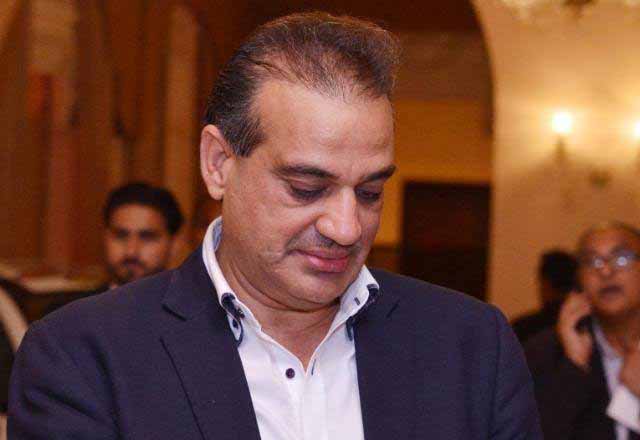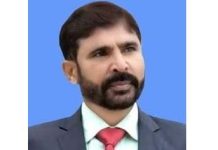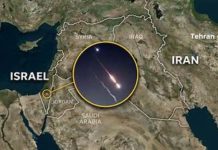Comment
Ansar M Bhatti
With a fragile ceasefire now in place between Pakistan and India after a brief but intense exchange of hostilities, there lies an opportunity—perhaps a rare one—for deep introspection, particularly within Pakistan’s own political structure. While the military has once again proven its capability to respond effectively to external aggression, the short conflict also highlighted an equally vital element: the importance of internal political harmony in matching enemy threats and maintaining national cohesion.
The recent crisis underscored that a nation’s strength lies not just in its military prowess but in the unity and clarity of its political direction. In this moment of post-conflict reflection, it is imperative that Pakistan reconsiders and, where necessary, redefines its internal political order for the greater national good. The current system, marred by division, mistrust, and selective justice, needs urgent repair if Pakistan is to move forward as a stable and resilient state.
At the core of this needed transformation is the principle that the country’s interest must be kept paramount over individual egos and political grudges. Pakistan’s turbulent recent history—punctuated by political witch hunts, selective accountability, and the marginalization of key political players—has weakened its democratic institutions and undermined the people’s confidence in the political process.
It is time to ensure a level playing field for all political parties, including Pakistan Tehreek-e-Insaf (PTI), which despite its contentious relationship with state institutions, remains one of the most popular political forces in the country. Whether one agrees or disagrees with PTI’s policies or rhetoric, it is undeniable that millions of Pakistanis see the party, and particularly Imran Khan, as their chosen representatives. Ignoring or suppressing this political reality not only risks further instability but also damages the democratic fabric of the state.
The need for redefining relations with PTI is not merely about appeasement; it is about practical statesmanship. In the recent conflict, PTI’s social media apparatus—often labeled as a thorn in the side of the establishment—surprisingly showed maturity by rallying behind the military in the face of foreign aggression. This gesture of unity, despite underlying grievances, deserves recognition and reciprocation. Political inclusivity, rather than exclusion, will strengthen the country’s ability to present a unified front both domestically and internationally.
One significant step toward healing would be the release of Imran Khan from jail, not as a concession, but as a step toward greater political harmony. If the establishment were to support this move, it could gain public respect and demonstrate a commitment to genuine democratic values. In return, it is expected—reasonably so—that Imran Khan would also demonstrate statesmanship by adjusting his political strategy to the ground realities and working toward establishing a functional relationship with the establishment for the good of the country.
There is an old saying: “Never waste a good crisis.” The war, unfortunate as it was, created space for internal realignment. The existential threat from across the border forced various political actors to see beyond their narrow agendas and realize that Pakistan’s survival and prosperity depend on unity, not division. This moment should not be wasted. Political reconciliation now could lead to a stable future.
The possibility of early, free, and fair elections in which all political parties, including PTI and Imran Khan, are allowed to participate without hurdles, may offer a viable path toward political stability. The international community, investors, and even Pakistan’s own citizens are watching closely. They want to see whether Pakistan is ready to chart a new course that puts democracy, transparency, and inclusion at the forefront.
Pakistan’s enemies had hoped to exploit our divided political landscape and fraying national fabric. The attempted incursions and strikes were not just acts of war—they were a test of our internal strength. That test has revealed our vulnerabilities, but also our potential. We have seen that, even in a politically fractured environment, a spark of unity can ignite collective strength.
However, let’s not be under any illusions: economic recovery and long-term national strength cannot be achieved in a politically unstable environment. Wars are fought—and won—by nations with robust economies, resilient institutions, and united populations. Pakistan’s current economic state is dire. Inflation is sky-high, foreign reserves are dwindling, and the IMF continues to dictate terms. Without political stability, there can be no investor confidence, and without investment, there can be no sustainable growth.
Thus, better sense must prevail—among all stakeholders. The establishment must realize that its role is to support, not steer, the democratic process. Political parties must understand that rhetoric alone cannot replace governance, and mutual respect is the foundation of lasting cooperation. The judiciary, media, and civil society must also play their part in fostering accountability without bias.
In conclusion, this is not just a political moment—it is a national one. A time to look beyond individual ambitions and work collectively for the survival and success of Pakistan. The war may have been short-lived, but its message was clear: a divided nation is a vulnerable one. Let us not wait for another crisis to teach us the same lesson.
Pakistan today stands at a crossroad. One path leads to reconciliation, reform, and resurgence. The other, to continued polarization, economic decay, and eventual collapse. The choice, as always, lies in the hands of those who lead us—but the consequences will be borne by every citizen of this country.
It is indeed the right time to redefine a new political order—before it’s too late.

















